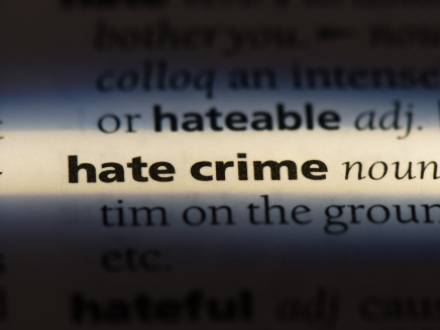Hate Crimes as Aggravating Factors in Illinois Sentencing
 Illinois treats hate crimes particularly seriously and charges can result in harsher penalties compared to similar crimes that are not motivated by bias. When a defendant is convicted of a hate crime, the judge can use the defendant’s motivation as an aggravating factor, leading to a more severe sentence. If you are facing criminal charges for an offense that could be considered a hate crime, speak with a qualified Chicago, IL criminal defense attorney about how it could impact your potential sentence and what you can do about it.
Illinois treats hate crimes particularly seriously and charges can result in harsher penalties compared to similar crimes that are not motivated by bias. When a defendant is convicted of a hate crime, the judge can use the defendant’s motivation as an aggravating factor, leading to a more severe sentence. If you are facing criminal charges for an offense that could be considered a hate crime, speak with a qualified Chicago, IL criminal defense attorney about how it could impact your potential sentence and what you can do about it.
What is Considered a Hate Crime?
When a person or group seems to be targeted based on their religious affiliation, ethnicity, race, gender, gender identity, sexual orientation, or disability, it is typically considered a hate crime. For example, if a place of worship, like a church, mosque, or synagogue, is vandalized, it can often be treated as a hate crime because the act targets a specific religious group. The motivation behind the alleged crime is the key to a hate crime charge. For someone to be convicted, the prosecution needs to prove that the person intended to harm the victim because of their identity or group affiliation.
How Can Hate Crimes Impact Sentencing?
There are guidelines for the sentences that can be imposed on defendants for whatever crimes they are convicted of. In Illinois, if the prosecution can prove that the motivation behind a crime was hate based on the target’s individual or group identity, the court typically uses that motivation as a basis to enhance whatever sentence would have been handed down for that crime by up to 30 percent.
For example, an aggravated assault conviction is generally punished with a prison sentence of three to seven years. If the incident is designated a hate crime designation, and the judge increases the sentence by 30 percent, the penalty could actually be at least nine years in prison, depending on the specific circumstances of the case.
What Can I Do if I Am Accused of a Hate Crime?
Judges are legally required to treat hate crimes more seriously than the same crimes committed without hate-based motivation. That is why even if there is unequivocal proof that you committed the crime you are accused of, it is crucial to demonstrate that you did so without bias or discriminatory intent. If you can at least avoid the hate crime designation, it can help you in sentencing. A skilled criminal defense lawyer can challenge claims that the crime was motivated by prejudice or bias and work to minimize the impact of a hate crime charge.
Schedule a Free Consultation with a Cook County, IL Criminal Defense Lawyer
If the prosecution tries to claim that something you did was motivated by bias or prejudice, speak with an aggressive Chicago, IL criminal defense attorney. At Law Offices of James F. DiQuattro, we understand the consequences of a hate crime designation and we will work tirelessly to protect your rights and seek the best outcome for your case. We answer calls 24/7 so call us at 312-627-9482 to schedule a free consultation.















